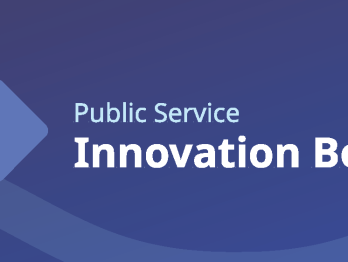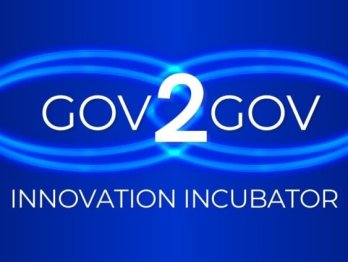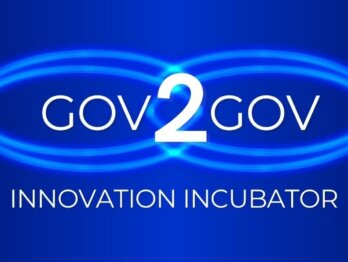ELA 360: Humanizing public services through collaborative innovation in Andalucia (Spain)

This blog is part of a series on the experiences and results of the government teams which participated as “challenge owners” in the OECD Gov2Gov Innovation Incubator. They were prepared by the teams themselves in order to offer first-hand accounts of their expectations, learnings, pain points, and overall assessment of the initiative. This blog was written by the team at the General Secretariat for Public Administration of the Regional Government of Andalusia.
From September 2024 to March 2025, the regional government of Andalusia, Junta de Andalucía, participated in the OECD’s Gov2Gov project incubator, to address its challenge in “ improving accessibility to public services for people in vulnerable situations and at risk of exclusion”.
This challenge emerged from a broader diagnostic conducted as part of the region’s Strategy for an Innovative Public Administration, which identified bureaucratic exclusion as one of the key barriers to equitable service delivery. In Andalusia, 37.5% of the population is in vulnerable situations or at risk of exclusion—a figure that has grown since the pandemic. In an increasingly digital world, ensuring that public services are accessible to all, especially the most vulnerable, is both a moral imperative and a strategic necessity.
Setting the direction: three strategic solution principles
During the first phase of the incubator, Andalusia scoped the challenge definition and (re)designed its approach to the challenge with the support of countries acting as “solution providers”, which shared their experiences and successful practices. Andalusia integrated three key principles that appeared especially relevant to improve the strategic direction taken to address its challenge:
- Strengthen the evidence-based approach to the challenge via “vulnerability indexes”: These tools help segment the population based on risk factors, enabling more efficient planning and delivery of public services. By identifying who needs help most urgently, resources can be allocated more effectively without overwhelming the system.
- Rely on the strength of social ties by recognizing the importance of “enabled citizens”: This concept allows individuals or associations to act on behalf of others in their interactions with public administration. It’s especially useful for vulnerable groups who may struggle to navigate bureaucratic processes on their own.
- Adopt the idea of ”proactive services” to simplify citizens lives: Instead of waiting for citizens to request services, administrations can anticipate needs and deliver support automatically. This reduces administrative burden and ensures timely assistance, particularly for those in crisis or with limited capacity to advocate for themselves.
These strategic principles laid the foundation for a more inclusive and responsive public administration. However, to truly test and refine these ideas, the team needed a concrete, manageable use case.
Narrowing the focus: ALS as a use case
One of the key insights from the incubator was the importance of narrowing the scope to tackle complex challenges effectively. The recent approval of Spain’s ALS Law (Law 3/2024), which mandates a coordinated and expedited response to patients diagnosed with Amyotrophic Lateral Sclerosis (ALS), offered a concrete opportunity to explore and prototype solutions in this area. With approximately 800 ALS patients in Andalusia and 90 new cases annually, the region had a well-defined user base to work with.
ALS is a rapidly progressing neurodegenerative disease that requires coordinated healthcare, disability, and social services. The law imposes a three-month deadline for initiating all necessary public services, making it an ideal test case for innovation. The challenge was not only logistical but also deeply human—how to reduce the emotional and administrative burden on patients and their families.
The incubator here was relevant because it allowed Andalusia to explore concrete solutions in a safe and collaborative environment, supported by expert countries that contributed innovative methodologies and practical experiences. This approach made it possible to identify real barriers in accessing public services for ALS patients and to design responses tailored to their emotional and administrative needs.
Designing ELA 360: A patient-centered approach to explore potential solutions
The ELA 360 prototype was born from the incubation process built to find a way to solve the challenge. At this stage, led by the Secretaría General para la Administración Pública, the project adopted service design methodologies such as user journeys, service blueprints, and rapid prototyping. These methodologies were selected with the guidance of Chile and Canada, acting as solution providers, who contributed valuable insights and best practices.
The goal was ambitious: after diagnosis, patients should automatically receive their disability card, parking permit, and a scheduled appointment for dependency assessment—without having to request anything. This proactive model aimed to eliminate repetitive procedures and ensure timely support.
Interviews were conducted with patients at various stages of the disease, healthcare professionals, social workers, IT staff, and coordination teams. These conversations revealed critical pain points: the stress of diagnosis, lack of immediate information, confusion between disability and dependency processes, and the emotional toll of navigating multiple bureaucracies.

Changing public services: implementation and impact of the incubated prototype
The prototype was designed to be fast and empathetic. Within three weeks, the team built a consensus around a solution involving interoperability between departmental information systems, proactive service triggers, and collaboration with patient associations. Transitional phases were proposed to allow progress while IT systems are upgraded, including pilot implementation at Hospital Virgen Macarena and coordination with the Andalusian Health Service (SAS), the Regional Ministry of Health, the Regional Ministry of Social Services and the Agency for Social Services and Dependency (ASSDA).
The incubator was helpful here because it provided a structured framework for co-creation among public administrations, healthcare professionals, social services staff, and patient associations. Thanks to the iterative methodology of Gov2Gov, it was possible to quickly validate hypotheses, build functional prototypes, and generate inter-institutional consensus, which accelerated the implementation of real solutions in pilot settings.
The main results of the pilots have been transformative:
- Reducing barriers for ALS patients to access the public services they are entitled to, by automating procedures and streamlining service delivery, minimizing the need for patients and families to navigate complex bureaucracies.
- Humanization of services to ALS patients, making them more empathetic and responsive to emotional needs.
- Scaling solutions based on proactivity, enabled citizens and vulnerability indexes. The ALS prototype resolves key uncertainties, such as understanding users’ willingness to share sensitive personal data in exchange for proactive service delivery, builds momentum and provides success stories which are now being used to promote and expand this type of solutions.
- Putting into practice innovative methodologies, such as service design and rapid prototyping, which have since been scaled to other use cases across the administration.
Spreading benefits: adopting a scalable vision of inclusive innovation
ELA 360 is more than a prototype — it’s a strategic commitment to collaborative innovation and inclusive public service. It demonstrates that meaningful change doesn’t always require massive technological investment but rather a willingness to listen, co-create, and redesign from the human experience.
The involvement of patient associations opens new avenues for civic participation and helps bridge the administrative and digital divide. This aligns with the broader goals of the Junta de Andalucía’s Strategy for an Innovative Public Administration 2025–2030, which envisions a fully digital administration that leaves no one behind.
We encourage other governments to engage in similar incubator processes. Learning from international peers, prototyping real solutions, and aligning services with citizens’ emotions and expectations can redefine public administration for the better.
Do you want to know more or get in touch with the team? Feel free to write directly to [email protected]
This blog is funded by the European Union. Its contents are the sole responsibility of the authors and do not necessarily reflect the views of the European Union.











